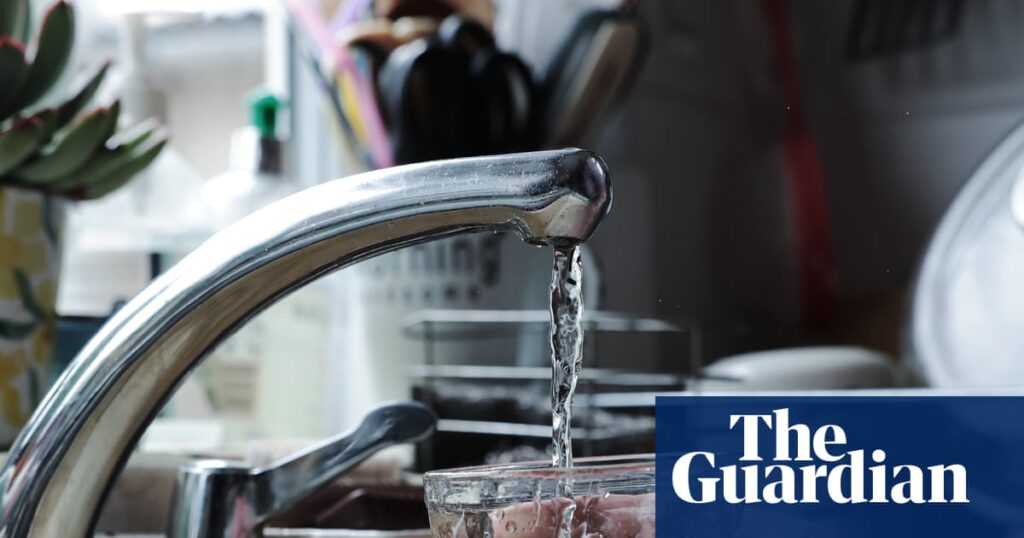A new water ombudsman will be announced on Monday by the environment secretary, Steve Reed, as part of government plans to overhaul the embattled sector.
The body will be among sweeping changes recommended in a review launched by Jon Cunliffe that are also expected to include the abolishment of Ofwat, the industry watchdog for England and Wales.
Ofwat will be replaced by a regulator with supervisory powers, similar to oversight of banks after the financial crash. Experts would be appointed to work inside water companies and ensure they are obeying the law and improving the environment.
The new ombudsman, replacing the Consumer Council for Water, will have strengthened legal powers to help consumers who face problems from water companies, such as sewage floods in their gardens and taps running dry due to burst pipes.
Water customers currently find it difficult to get water companies to respond and properly compensate them when they are left without water for days. Signing up to the CCW is voluntary for water companies and it is often left to local MPs to solve complaints.
During broadcast interviews on Sunday, Reed said Ofwat was “failing” and he would be “changing the whole system”. Critics say Ofwat has presided over a culture of underinvestment in water infrastructure and financial mismanagement by companies since its creation in 1989.
Thames Water, the most troubling case for the government and the UK’s largest water company, is loaded with £20bn in debt and struggling to stave off financial collapse.
Reed also vowed to halve sewage pollution by 2030, making rivers, lakes and seas “the cleanest since records began” after years of sewage dumping by water companies.
He said he would resign from his role if the government failed to hit the target. “Politicians come and say we’re going to do things. Of course our job should be on the line if we don’t.”
However, he came under fire from sewage campaigners for announcing targets which they say are no better than those in Ofwat’s plan to turn around water company performance, which came out in December.
During the price review process, when the regulator and water companies negotiate how much bills need to go up by to invest in the water sector, Ofwat last year announced the investment from bills would cut sewage spills by 45% from 2021 levels.
Reed announced he would cut sewage spills by 50% by 2030 against 2024 levels. However, Ofwat’s goal would reduce sewage spills to 204,893 by 2030, compared with Reed’s that would reduce them to 225,199 by that year.
The £104bn to be invested in fixing England’s creaking sewage infrastructure is coming from a record increase in water bills. Reed said he was “furious” about an average 36% rise but was unable to rule out further above-inflation increases in future to fix the broken water sector.
He added he expected to see a “small, steady increase in bills” rather than the shock hikes announced in the current price review period.
Feargal Sharkey, the former Undertones frontman turned sewage campaigner, said the new targets were worse than those Ofwat announced during the price review process.
He said: “How on earth can anybody conjure up a sewage reduction plan that is worse than the one conjured up by the previous government a year and a half ago? The government has decided to axe Ofwat while announcing targets which are worse than theirs. Their plan is not worth the paper it’s written on.”
In a speech after the Cunliffe report’s publication on Monday, Reed is expected to say: “Today’s final report from Sir Jon Cunliffe’s independent water commission offers solutions to fix our broken regulatory system so the failures of the past can never happen again.
“The government will introduce root and branch reform in the biggest overhaul of water regulation in a generation.”
Reed is under pressure from other political parties to go further in his overhaul of the water sector and change the current privatised for profit model. Nigel Farage told the BBC the water industry was in a “hell of a mess” before adding that the government should not bail out investors if water companies went bust, even though Reform UK’s policy is to bring 50% of the sector under state control.
Reed argued that nationalisation would cost “upwards of £100bn”, diverting resources from the NHS and taking years during which pollution would get worse, although this is heavily disputed by academics and campaigners.
Farage said it would cost “a lot less” than £50bn if the right deal was struck. “It’s public-sector thinking, we need private-sector innovation,” he added, although the industry is currently run by the private sector.


